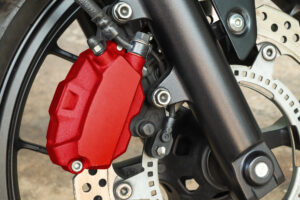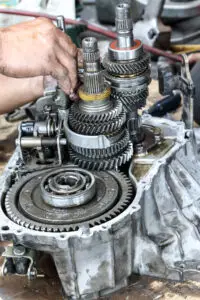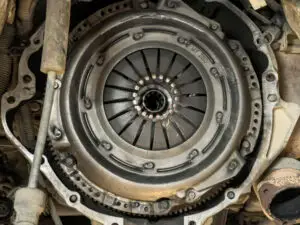Winter winds can feel bitter against your skin — and frigid temperatures impact your vehicle, too. From essential components to safety preparations, it’s important to think ahead to what your car may need ahead of and during this winter season. Once snowy driving conditions and freezing temperatures hit, you don’t want to be caught off guard by a car that won’t start, sudden loss of traction, or inclement weather that leaves you stranded without any supplies.
Take time to focus in on these essential car maintenance tips and check in with the mechanics at AAMCO Chicagoland if you have any concerns.
Check the Health of Your Battery
If you’ve ever left your house, hopped in the car, and discovered it won’t start on a cold day, you’re not alone. While this can happen at any time of the year, it’s especially common during the winter months — and for good reason. In general, you should plan to replace your car battery every 4-5 years. If that timeframe is approaching, It’s especially important to have it checked and likely replaced before this winter hits.
Freezing Temperatures Impact a Car Battery’s Ability to Hold Charge
Though each season can impact your car battery in different ways, cold temperatures in the winter prevent it from storing the same amount of charge as it can in warmer months. A battery that’s several years old and needs to be replaced may not be able to store enough charge to get the engine up and running in frigid temperatures. In fact, your battery may lose as much as 50-60% of its charge on a cold winter day.
Take a Closer Look at Your Tires
Tire tread is a key factor in how safely you can drive, no matter the conditions — but it becomes even more important on wet, snowy, or icy roads. Head to a tire shop, trusted mechanic, or use a tire tread gauge to assess whether it’s time to have them replaced. You can also use a penny to determine whether your tires are over-worn — just place a penny head-down between the tread ribs on your tire. If the entire head is still visible, your tread is at 2/32” depth and it’s time for new tires. The more worn your tires, the longer it takes to safely stop your vehicle and the less traction you have, especially in adverse conditions.
Frequent Snowy Driving May Warrant Winter Tires
The more often you drive on snowy roads, the more you’ll benefit from snow tires. Though all season tires are good year-round, winter tires can increase your braking performance in snow by around 50% and help minimize skidding that can lead to accidents. Plus, you’ll extend the life of your all-season tires by swapping them for winter tires part of the year.
Maintain At Least Half a Tank of Gas
The reason behind this tip is twofold. First, it will help prevent you from running out of gas if you get stuck in traffic or on the side of the road due to weather. If you’re idling while waiting for help, you’re still burning through fuel and can run out if it takes a long time for people to reach you. In freezing temperatures, this can leave you and your passengers stuck in the cold.
Second, empty space in your fuel tank can allow moisture to build up, potentially leading to rust and corrosion. It can also allow your fuel lines to freeze, leaving you stranded by a car that won’t start. Over time, having extra air in the fuel tank may cause your fuel pump to wear out and fail faster, impacting your fuel economy and potentially keeping your car from starting.

Be Prepared with an Emergency Kit in Your Car
Though not directly related to your car’s operation throughout the winter, it’s important to keep an emergency kit handy in case you find yourself stuck or stranded. Having the right tools and supplies in your vehicle can help get you moving again or keep you comfortable while you wait for help. Include these items in your kit:
- Spare cardboard or cat litter to help get you out of deep snow.
- A brush and scraper to remove snow and ice from your vehicle.
- Jumper cables in case your battery dies.
- A battery-powered phone charger.
- A blanket and gloves to keep you and your passengers warm.
- Non-perishable food and water bottles.
Keep a Regular Seasonal Maintenance Schedule
The best way to stay prepared all year is to schedule seasonal maintenance services with your mechanic. Regularly checking fluids like engine oil and coolant helps ensure they’re at the proper level and quality. Inspecting important components like the battery and windshield wipers will help ensure your car starts easily and you can maintain visibility when inclement weather hits. Not only will your vehicle operate more efficiently, but you’ll also stay safe and drive confidently throughout each season of the year.
Get Ready for Winter with a Visit to Your Local AAMCO Chicagoland
Worried about winter? Bring your vehicle to the mechanics at your local AAMCO Chicagoland and we’ll help ensure your car is prepared for any winter storms that come your way. Schedule your next seasonal maintenance appointment with us today!






